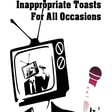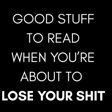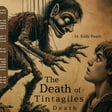Become a Creator today!Start creating today - Share your story with the world!
Start for free
00:00:00
00:00:01

Guest: Mathematical Artist: Maddie
Maddie is a trauma survivor, artist, and person living with neurodivergence. She's also a socialist, a service industry worker, and a damn interesting chick. We talk about using horror to manage anxiety, why shame is probably not the best motivator, and how fear and anger make some people mean.
Also, depression and creativity, how art and math play off each other, a little bit of lib-talk, and a MadLib.
Find a transcript of this episode here.
Transcript
Introduction to Neurodivergence and Art
00:00:02
Speaker
You are listening to The Mentally Oddcast, where we talk with creatives about neurodivergence, trauma, addiction, and all the other things that impact and inform our art. Our goal is to show everyone that no matter what you're going through, you are not alone and you can make art about it.
Maddie's Artistic Journey and Mental Health
00:00:34
Speaker
Hi, friends. It's me, Wednesday, Leave Friday, and you are listening to The Mentally Oddcast. This week, we have Maddie, and Maddie defines herself by her dedication to learning new things and to personal growth. ah She is involved in drawing, painting, and sculpting and cooking.
00:00:55
Speaker
um But Maddie also lives with depression and anxiety, ADHD, and maybe even more than that, we'll we'll talk a lot about it. um Unlike me, Maddie is not yet 25 years old, so she is like way ahead of me when it comes to figuring all that out. Hi Maddie, thanks for being here.
00:01:16
Speaker
Hi, I'm happy to be here and helping you out. I'm happy that we could finally get it set up. Yay, yep, yep. As with so many people, ah you know, we get busy and scheduling is tricky at best, at best, even though it's all remote.
Anxiety and Horror Movies
00:01:33
Speaker
So, okay, before we get into anything like heavy, the first thing that we like to talk about is the story of your first horror movie. So give it up. What's the story?
00:01:47
Speaker
Okay, so I'm a little bit of a weenie. I won't lie. I like a lot of thrillers. I like a lot of like slasher stuff. But when I was really, really young, um my parents were super into like ghost scary movies. So the first scary movie that I ever saw was The Haunting in Connecticut.
00:02:08
Speaker
Absolutely terrifying. I remember I was like so scared pretty much for like a whole week and Something that I didn't realize until I was much older was that it was actually like triggering my anxiety response um I was kind of like I don't know I was I was kind of using the idea of ghost as like a way for my anxiety to come out in a way that I could understand it a little bit better because you know when you're when you're young you you kind of just feel all these feelings and you don't really understand well what's happening um but yeah so that was that was crazy it was ah
00:02:47
Speaker
It terrified me a lot, but now um I'm a little bit better. but i It's really funny, actually my friend, I don't know if you know anything about the honey in Connecticut, yep but my it takes place when a family moves into this old timey house that has a dentist office underneath and like in the basement.
00:03:08
Speaker
And my friend, one of my childhood friends had a house like that where their basement was an old dentist office. And we would do sleepovers in there all the time. And I just remember like being absolutely terrified ah of of just that house in general. So yeah.
00:03:26
Speaker
Wow. um I actually think you hit on something really important, which is the way that people use horror, ah horror fans in particular, but I think it it goes outside of of hardcore horror fans, but as a way to manage anxiety.
00:03:43
Speaker
um I think also like rewatching things in general or the push toward watching. ah When I was a kid, I read a lot about serial killers. I read about like the Manson Family was was huge back then. People were were reading about you know all that. um and I was fascinated by it, by just the abnormal psych aspect, but also because it's a very safe way to acquaint yourself with things that you would not want to acquaint yourself with in real life. And horror fans do tend to rewatch a lot of horror over and over again because it's not going to hit you by surprise, but yet it still allows you to go through all the different emotions.
00:04:28
Speaker
especially when you're talking about people who have left abusive situations and are trying to like figure out what to do with all that like nervous energy, all that fear
Therapy and Creative Outlets
00:04:42
Speaker
energy. like It's all still there, but you're if you're not constantly frightened anymore, it ah yeah it kind it needs someplace to go, I guess.
00:04:54
Speaker
You know, that that definitely makes sense to me. um I used to wonder when I was young, like, how do people do this? Like, how do people watch these scary movies all the time? And um as I've gotten older, it really just, actually, no, honestly, really just in my time starting therapy and analyzing how people feel feelings a bit more than I had really ever done so. um I kind of realized that it's really just,
00:05:24
Speaker
like almost instinct, like you you're you chase that that feeling or that emotion that you need to finally release. um So yeah, I definitely see how people, you know, they they crave that or or they know that they need to release the anxiety. They knew they need to release the fear, but having ah a safe way and a safe, predictable way to do so could be very, very comforting. Yes.
00:05:51
Speaker
Yep, very much so. So what would you say is the place of horror as a genre in your life right now? For me, it's a bit, it's a bit of a litmus test. Going back to a little bit of what I was saying earlier, how I feel like the ghost, the ghost fear was a reaction of my anxiety. um It's actually really funny in my in my friend group,
00:06:17
Speaker
My high school friend group, I was always known about of being like the weenie or like the scaredy cap. um Obviously, in a joking manner, nobody was ever taking it too seriously. um But i I would frequently find myself not being able to sleep.
00:06:37
Speaker
out of like this this fear of of ghosts that I didn't even think were real. And I wouldn't even need to watch scary movies. I would just have to think about them. like There's a very specific scene in um Insidious where they're sitting at the table and that that demon face suddenly pops behind the the lady. And that specific scene would just haunt me. It'd be 3 AM m at night.
00:07:02
Speaker
and It would terrify me. But now that I'm
Therapy Challenges and Intersectionality
00:07:06
Speaker
you know going on this this growth journey and in therapy and I'm i'm studying more of my anxiety reactions, um I realized that like this really was just unchecked anxiety because I didn't actually get diagnosed until I had had basically a mental breakdown. and 2023, like midway through 2023. I had just this always assumed that this was just how life was. you know I assumed that everybody just felt this way. And it got to a point where I couldn't sleep, I couldn't eat, I couldn't do anything without thinking. um And for a horror, it was so difficult to watch any horror movie
00:07:54
Speaker
towards the, uh, the peak of this anxiety because it was just such a big manifestation of what I couldn't control. And, um, you know, all of the threats that I'm always hypervigilant for, but now that I've begun, you know, therapy, I've began my my medication journey. Um, it's become easier for me to watch scary movies. And, um, I actually really like a lot of, you know, the stuff that used to scare me stuff like zombie movies stuff like you know horror radio games um I still haven't breached the actual ghost genre yet out of you know still that that fear that's something I'm working towards but a lot of slasher movies um I actually I recently watched Scream on the 4th of July um oh wow
00:08:47
Speaker
for the first time ever. I'd never seen it, even though it's a classic. um And there it was it was one of those ones where I was just terrified of it, even though I didn't know like anything about it. So being able to see to finally go over that hurdle, it really did feel like I was finally getting a hang of of just, you know, the the general terror that you feel in life, yeah you know? yeah Well, you've you've hit on so many important things there. um I think one of which is that people that live with a lot of anxiety tend to recognize each other.
00:09:30
Speaker
And those are going to be the people that you're more likely to gravitate to, especially like in a work or a school kind of situation, um which in turn does make it seem like everyone is living with a high degree of anxiety because everyone, you know, has a lot of anxiety. Everybody's worried. Everybody feels powerless about what's going to happen.
00:09:53
Speaker
yeah it's it's like we're all making eye contact with each other and like doing the the crazy twirly finger motion like oh yeah what is happening out there but it is easy to forget that constant fear constant anxiety hypervigilance are not They may be more popular than ever, but they don't have to be a permanent state of affairs. And it so pleases me to find out that you are in therapy now. I mean, it's it sucks that so many people wait for a breaking point.
00:10:32
Speaker
you know I mean, I certainly did. I generally don't get back into therapy until things are just falling apart. And it's because it's hard. It's hard to get to therapy. It's hard to find a new therapist that takes your insurance, that's taking new patients, that's able to see you in a timely way. like All of it is just so, so difficult, which I think is another reason I end up using horror movies, because horror movies are right there. I'm surrounded by them.
00:11:00
Speaker
um Was it difficult for you to get therapy once you decided that you needed it? Um, I think that I, I really settled for getting my foot through the door, then finding the perfect person to be my therapist. Um, I actually went straight to my doctor and I'm very, very fortunate. I am. I'm one of the lucky people that can say I go to my doctor with this qualm. They believe me.
00:11:31
Speaker
And I am able to see, yeah, no, it's and it's very rare, because I have lots of friends and family that are struggling. um So you know i'm I'm definitely grateful for for their time and their attention. But I took the recommendation from um my my doctor, and I let them refer me to a ah a a business that has um They have senior therapists and then they have people that are just graduating with their masters and still looking for their PhD. I'm actually still seeing a student. Technically, they are they are a student because they're still in school for their PhD. My therapist is kind of one of those, not temps, but she's she's still learning. so're It's a bit of a learning journey for for the both of us. um
00:12:27
Speaker
and Yeah, it so i I'm happy that I got started. I think that, you know, I might, I'm not sure much longer I have with her. um just Yeah, those are usually limited, right? It's like 10 sessions or something, right? So it's not necessarily that it's limited, um like legally. It's just I think that my needs are growing past what she's able to accommodate for.
00:12:55
Speaker
especially as I am getting more serious with the idea of getting my autism autism diagnosis. um You know, we've talked about it briefly in the very beginning of our sessions, but she isn't knowledgeable enough to really help me in that way, which, you know, everybody has their specialty. I understand. No hard will for her. She's great. She tries her best. um But you know, I'm perusing the ideas of finding a more inclusive therapist, just because there are so many different intersecting issues that come up in my life. And it's like, well, yes, it's my anxiety. Yes, it's my life. But it's also, this is just
Workplace Gender Assumptions
00:13:37
Speaker
autism. This is just what happens when you have to perform under capitalism and you are disabled. um There are a lot of times where we're talking and I'm
00:13:47
Speaker
you know talking about burnout and it's not that she doesn't know what it is but she doesn't get it in the same way that i feel like another autistic person will get um not that she's been trying but no no i i fully appreciate that i know that at one point I really needed therapy. I didn't have insurance. I think H and I were not married yet, so I didn't have his insurance yet. and so I saw you know at the local university, I i saw one of the psych students just to talk things through.
00:14:20
Speaker
and it's it is fine for some things but like if i'm sitting there in my forties and you know some barely twenty-year-old student is telling me she understands what i'm going through when i'm like nearing a midlife crisis like i don't mean to be rude but no you you don't You know, you don't understand things like crushing poverty because you are affluent and you're young. So you haven't had to like, I mean, you you know, people you need someone who gets it.
00:14:57
Speaker
which, yeah whether you're talking about like age things or or like you like you were saying, like a lot of intersectional issues. you know You can read all about what it's like to be handicapped, but you don't know how it feels when you're standing at the bottom of a staircase knowing you can't go the hell up it.
00:15:17
Speaker
and you know you' like some things have to be experienced to be fully understood. I think it's as simple as that sometimes. Yeah and that's not to say that you can't emphasize with but that's why you know listening to people when they speak up is very important because you know that that sense is true in a lot of different topics not just being disabled um but I'm sorry. booby up I had a point and now I'm ah trying to backtrack. Well, we were talking about intersectionality and how it can apply to the search for a therapist. You know, and and just how ah you you need to find somebody with an understanding of your life experience, even if they haven't experienced it themselves. You did mention that you're looking for a different therapist. is that How's that search going?
00:16:08
Speaker
Um, so I haven't, I haven't really been looking recently just because of the, the burnout as, as, as the aforementioned, um, cause I just switched jobs. So now I am working at a car dealership. Um, which is so very fun. Um, are you in staff to D real, not to derail the topic, but I always forget how just incredibly rude men are to women.
00:16:36
Speaker
Uh, just normally until I worked at a car dealership and now I have at least two people a day, like just demanding to speak to a man because I answer, thank you for calling blah, blah, blah. How can I help you? And I think I'm an idiot who doesn't know what I'm talking about. Um,
00:16:56
Speaker
Yeah. Yeah, I would imagine that that is rampant when you're talking
Depression, Motivation, and Creativity
00:17:00
Speaker
about cars. My last day job was selling violins, and there were people that would just give me this snide like, surely there's a gentleman I could speak to about this. Like, yeah, there is, but he's going to tell you the same friggin thing I just told you. Yeah. But yeah, that's that's one thing about the service industry is that you get exposed to all kinds of people And it's it's hard not to make sweeping generalizations about all of humanity when you see like the same six kinds of people being the same six kinds of rude every day.
00:17:38
Speaker
you know yeah I don't want to necessarily say, hey, I think church people are more rude than non-church people. But 20 years in retail and customer service certainly bears that out. like there would If I were trying to prove such a thing, there would be a great deal of evidence backing me up. Just go to a diner on Sunday right afternoon, see who tips.
00:18:02
Speaker
Yep. You'll see. Yep. Just go to the IHOP and keep your eyes open. Definitely. um So let me ask now, if you have occasional depression and typical anxiety, how does that impact like your motivation and how much work you're able to do? Like creative work, I mean. Yeah. So um I find that I will really, really use my creativity as my source of of healing.
00:18:32
Speaker
um I find that i it's a sign that I've begun to heal once I get back to the part of me that wants to make, wants to create things. um And I find that since starting therapy, I'm trying to add more creative endeavors into my life to kind of act as buffers for the burnout so that you know, all these tedious tasks, all of the, you know, the, the rude people that demand to talk to a man, all of the, you know, frustrating conversations that I have with friends when they just don't understand that you can't change your plans the day of, and then tell me to go to the bar by your house and you don't tell me where the bar is. Like you live in the city, there's 10 bars by your house. Anyways, but bringing it in, finding the time. Um, it's a lot of time management.
00:19:24
Speaker
um which sign kind of sounds kind of counterintuitive. um But, because you know, you you fall into depression and you you get the sense of i I don't want to do anything. I don't want to move. I don't want to. Yep. You get this just feeling of the last time I felt it, it was just, it was just like, like the the TV sound, you know those old TVs when ah they had the big hulky backs and you would
00:19:59
Speaker
change the the HDMI channel and it would just be the fuzzy screen. yeah um like I'm sorry, I need to point out that old TVs don't have HDMI signals, but um I ah was trying to think of, um you mean the rabbit ears. See, if an old TV didn't work right, you know what you did. You hit it. You smacked it right in the side. and We were a violent people in the 80s.
00:20:28
Speaker
um and and yeah but but no i get it i get it and the thing is that like depression it just makes everything heavy and dark and difficult and while everything is heavy and dark and difficult there doesn't seem to be a point you know because that's for me at least the the most difficult thing isn't finding like time to to do something it's convincing myself that it's worth doing because when i'm depressed nothing seems worth doing nothing seems worth the effort like i'm hungry and i'm thirsty but what would be the point of going into the kitchen all it's gonna do is have water and food why would i even go in there like and
00:21:13
Speaker
you know like a sane person would say, well, I don't understand, you're hungry, go get something to eat. But I bet you get it when I'm like, no, that's so much work. That's so much work. You know, it's, it's just more effort that I'm prepared to expend. And, you know, then you end up irresponsible because not hydrating and not consuming nutrients, of course, makes your body and your mind not work as well as it should. And then it's just this whole crazy cycle that eventually ends you up in a hospital or a therapist office or somewhere worse.
00:21:51
Speaker
Yep, yep, exactly. And I feel like that's why it's so hard for people who haven't been depressed to understand what we mean, what we say when we say it's a cycle.
Societal Expectations and Economic Pressures
00:22:02
Speaker
Because, you know, I'm sure that my legs work. I'm sure that I could get up right now. But sometimes the shame of not doing anything is the only thing that can get me up out of my bed. um That is what I'm realizing is is a big motivator for me.
00:22:19
Speaker
um shame? Yep. From from from my unhealthy coping mechanisms. Yeah, yeah yeah, I know. It's not fun. I it's one of those things I'm trying to tackle. But um I find that that was kind of how I i adjusted to living. um Because I never really had anybody pushing me to succeed to do anything. um So, you know, it was almost like This is where it gets, it becomes very elaborate because my autism is kind of like, I see what is in the movies and I see that this is how life should be. So even though I know that my life, I should be doing XYZ, I will use that shame and say, I don't have XYZ. So I need to keep getting up. I need to keep doing. um Even though there's nobody behind me pushing me to do it, I just know internally that's something I have to do
00:23:19
Speaker
to be successful, to fit in. It's almost like not it's almost like masking, but it's it's your life, you know? Oh, yeah. Yeah. I mean, i'm ah I'm an adult person who didn't do any of the adult person things.
00:23:36
Speaker
I am full blown communist, liberal. like Fuck the man. I'm not having kids. I'm not doing nothing. My mother's family, very, very typical Democrat. like We have 2.5 kids. We have a dog. We have a house in our name, 401k, saving up for retirement. like Joe Schmo exactly the person that you were just talking about. But my parents are very different from either of us. They're in a very strange middle place where they are they are they're very, very conservative, very, very different from me. um But I see them trying to at attain this
00:24:20
Speaker
normal life, and it just doesn't work for them. And I see how miserable that they are at some points, just struggling to, I don't want to say fit in, but to to achieve the the American dream in quotation marks, I say. Well, and why it's not a thing even if, I mean, it never was a thing for everybody, but now it's getting to the point where I mean, to be very blunt, even middle class white people are feeling it. you know like when it was just when When crushing poverty was just a thing like on the other side of the red line, people didn't care as much. But now, like so many more people, an entire generation of people, it started with my generation, the exers. There were some of us that just like couldn't quite catch up to what was happening. but
00:25:11
Speaker
Now like wages are so low, expenses are so high, and the world just isn't what it used to be. And I love so much that the generations coming up are just looking around and saying, well, that doesn't make any sense. Why are you guys doing that? And you know boomers are looking back like, oh, how dare you? We've always done that. No, bitch. No, these things are not.
00:25:36
Speaker
Like people don't understand like, Oh, why do marriages not stay together like they used to? And it's because women couldn't leave. You know, you couldn't just get a divorce. You couldn't just get a job and support yourself. Especially if you have kids, people were allowed to say, I'm not going to hire you because you have children to to women, not to men, but you know.
00:26:01
Speaker
in the world and it you know we we've gotten to the point where people say, oh, you know what? I'm just not going to work at your shitty fast food restaurant. How about that? How do you like them apples? And that's why like I'm so in love with the idea of a universal basic income. If we had a UBI, people would still work. People would still do things, but corporate, we wouldn't be at the mercy of corporations.
00:26:26
Speaker
because Walmart and McDonald's and Yum Foods and Darden and all those places, they know that without a job, most of us will die. you know We'll be homeless. We can't go to doctors. They they know that. So yeah, please. yeah No, I was going to say, it's very interesting that you brought up the UBI because that is one of my favorite talking points to bring up when I am having debates because there's a very specific situation that I always define it as. It's not technically a UBI, but going back to the pandemic times when we were getting the stimulus the stimulus checks,
00:27:09
Speaker
mom I distinctly remember my sister got a stimulus. She was independent on her own. um You know, she thought she was going to be rolling the dough. She was very excited. But then right before she could do anything with the stimulus, her car broke down. She was devastated. She couldn't, she was worried about how she was going to get to work, how she was going to get to school.
00:27:34
Speaker
and Then she realized I can use the stimulus check to buy a new car, maybe a shitty car, because, you know, the stimulus was only what, like 2K? Maybe probably less. mom But that really got me thinking, okay, this is what it means to have the government supporting you in daily life.
00:27:57
Speaker
Like she would have been set so many steps back if she hadn't had that resource to buy the car because you don't have the car. You can't go to work. You can't make money. You can't buy a car. You can't go to work. can The cycle continues. And so I use that as the example when I am fighting for the UBI because it's like That is what having that funds can help someone with. well and It's not gonna not going to save their lives, but it will be very, very useful and a ah huge asset, especially to the middle class, especially to people in poverty. It can save lives. I don't know if you know about this guy, but there was a dude who was a friend of a friend. I did not know him personally, but he had set up a GoFundMe
00:28:40
Speaker
because his insulin costs were over $1,000 a month. And he was working full time, but he could not afford his insulin. And he was like, man, if I can just make it to Christmas, then I'll have money and I can get my insulin. So please help me out. And he died on December 22nd because he did not make enough money with his fundraiser to buy insulin.
00:29:06
Speaker
And the fact that that would happen in the country that I live in, I mean, that should shame everyone anytime a person. I mean, I don't actually think people should have to work jobs to deserve like the
Systemic Issues in Society
00:29:22
Speaker
basics. Exactly. But but even if we say that.
00:29:26
Speaker
ah A person with a job can't afford their life-saving medication. That is obscene. And if you're going to go around telling people, for example, that you are pro-life and that America is the land of freedom, you can't just sit idly by when people are dying of poverty. It's so unreasonable to me that we we can live in ah in a not just a country, but in a world where we have this technology to save people's lives.
00:29:54
Speaker
and it's blocked behind a paywall, especially like such a high one, such a high one. There's absolutely no reason that insulin should cost that much money. Absolutely no reason other than greed. No, and the people that made insulin didn't want people to be charged for it at all. You know, there there was no patent on it. That's people buying it up and making sure it's expensive. And you hear these people from drug companies, they'll just say out loud, well, if people want to live, they'll pay it.
00:30:25
Speaker
You know, like maybe, maybe if they can, they will. But, you know, we' we've talked about this on the show before that basically Richard Nixon boned every last one of us because until him, ah it was illegal to make a profit on health care. It was against the law. And people act like that was not the case. It hasn't been very long. It's kind of like women being able to have their own bank accounts.
00:30:53
Speaker
uh, you know, or any sort of like free protections. Like it hasn't been very long. These things have not always been here and people forget their importance because they say, well, of course my boss can't fire me now for being pregnant. Well, they kind of can because that will employment laws mean they can fire you. They just can't tell you that that's why.
00:31:16
Speaker
yeah So we're in this place now where we're fighting for rights that people seem to think that we already have. You know, i'm ah I'm a cis white woman. I have a lot less to fear than a lot of people do, given what people are planning for our country if they get back in office. Not to derail, but I've been trying to understand those people, not out of a sense of kindness, but because my parents are those people. Yeah, I've got those in my family too.
00:31:45
Speaker
Yeah, so real. um But I was reading this book and it's called The Body Keeps the Score. I don't know if you've heard about it. I'm not familiar with it. It is kind of a controversial book because the author is, I mean, it's a very dated perspective on like psychology um and like the biology of the human body, the brain specifically, and neurodevelopment.
00:32:15
Speaker
like your brain's function and development. um It's just controversial because he makes some some comments and some beliefs about veterans from the v um from the war in Vietnam. But they talk about this this concept and it is the concept or the idea that Your brain is protecting you. your Your brain will do anything to protect you from trauma. So I'm i am at a point in my life where I pretty much believe that a lot of conservatives at this point um to fully accept their role in the world we live in today would be a traumatizing act.
00:33:03
Speaker
And so it is hard for them to see the other side because to see reason would be traumatizing them. No, you're you're absolutely right. it it A lot of that is a fear reaction because once you admit and realize that there are no guarantees, the world can fuck you over completely at any time, and you can do all the right things, you can work really hard and still wind up with nothing, that's terrifying.
00:33:31
Speaker
And it kind of goes hand in hand with the way that a lot of very wealthy people like to pretend that they came up from nothing. Like this whole thing with J.D. Vance. J.D. Vance did not grow up poor. He's not Appalachian. He grew up in a city. He was born out that way, but his life was bad because his mother was an addict. You know, that's like what what he, you know, quote unquote overcame.
00:34:01
Speaker
And it's so disingenuous because, yes, he acted out. he was ah He did a lot of stupid things and then he stopped doing stupid things and his life got better. And that's great. But the thing is that if you're ah if you're poor and you do stupid things and somehow don't end up in prison, you don't get to stop doing stupid things and then suddenly there's money for you to go to Harvard. you know that's That's not how that works.
00:34:29
Speaker
And when people say, Oh, well, I made good choices. And that's why I'm doing well today. Well, if your choices were to go work for the family business or go to college, whichever one you chose, you were probably going to be fine.
Inequality and the Myth of Success
00:34:43
Speaker
You know, I mean, that's great that you stopped like being an a-hole, but that you know Kid Rock is the same way. He pretends he came up from nothing, and I'm from the same part of the country as Kid Rock. They had at least as much money as the Romneys. you know They were wealthy people in a wealthy neighborhood who thought it might be funny and cool to pretend they're from trailer parks. First of all,
00:35:12
Speaker
I mean, it's it's so inherently classist to be like, look at me in my trailer park. like Dude, people live in trailer parks because they can't afford real houses. It's it's not chic. you know its It's kind of insulting to be like, you know, I really want a house, but I'd also like it to tip over if it rains too hard. like No. Yeah, it's it's crazy. It's really crazy. And two two separate thoughts of logic going on in my brain right now. I hope I don't forget the other one as I'm speaking. But um the first one, bringing up JD Vance and his mother. Now, I am very, very sympathetic. I have lots of friends who are dealing with addiction, who have overcome addiction. um It's hard, especially in America, where, you know, it seems like everything is pushing you towards some way to escape life. Yep. Life, work, your job.
00:36:10
Speaker
just society, climates, change, everything just scares you so much that you want to find any release. um I would 100% respect that part of of his story if I could see any sort of policy that he is planning to do to help with the addiction problem yeah in America. very much What is his plan? Because you cannot you know use that as a springboard for your your career basically because who even heard of this man before before he was he was picked but you cannot use that way that that that pain that that woman was feeling as a springboard for your career and not have a solution because that's the first thing that people like me liberals um well i don't know liberals very
00:37:02
Speaker
Uh, term right now. I like the term progressive actually, because it's just, you know, let's move forward together and be better. But like, so, so what are you going to be doing to address these issues? Because she didn't fall out of a coconut tree. You know, something caused her to become this way. So what is the issues? What are we going to be doing to help with women's mental health? What are we going to be doing to help fighting addiction? What are we going to be doing to help address the reasons people are falling into addiction. I live near Kensington. It's the fucking drug capital of the world. No, maybe, maybe the USA. But it is so, so bad. And I understand. I 100% completely understand what drives these people to becoming addicts. But I don't understand using
00:38:03
Speaker
I can't justify using addiction as as his springboard and not having any solutions. That's just what has always stuck with me. I know this has been a long rant, me just complaining about it. No, no. It's so valid because we get that a lot from the right. like All the people that don't want to do anything about guns and think everybody should just have whatever gun they want, they insist that the real problem is mental illness.
00:38:27
Speaker
So we say, okay, great, let's test everyone to see if they're mentally ill before they get a gun. Oh, no, no, no, no, we can't do that. Okay, well, let's make it really easy and not stigmatized to to let everybody get the mental health treatment they want. Oh, no, no, no, no, no, we can't do that either. Why should we have to pay for other people's mental health treatment?
00:38:48
Speaker
And that whole like, why should we, you know, XYZ, like that's, that's a big conservative thing. It's like, well, do you want to live in a society or don't you? Talking about the American dream, I feel like he's trying to portray himself as like this, this true American, because he's achieved the American dream. And it's just like,
00:39:09
Speaker
It's so much easier when you have money to be successful in every single way. Of course. And I'm just very tired of this this concept of the American dream because it doesn't exist. It's a sham. It has always been a lie that was sold to you to convince you. Well, and if you're a poor person, it kind of feels like a practical joke.
00:39:32
Speaker
You know, I grew up middle class. I did not like want four things as as a child, really. Like I didn't see doctors, but there were other reasons that that that happened. So like my health, my health suffered because of like ignorance and ah and abuse. But overall, like we had clothes, we had food. i like It was bachelor food. We didn't eat like proper food. We drank a lot of soda and just like junk. But we weren't homeless. you know we didn't we we Our electricity wasn't getting shut off. i mean you know Stuff like that. We we lived ah in a civilized way. But when it came time for
00:40:14
Speaker
When it came time for college, for example, there was no money for college. like I worked full time my senior year of high school. I had two jobs the whole time I was an undergrad, and then another job in the summer. like I worked and worked and worked and worked, and I did a double major in four years, got out of college, and not only were there no jobs, but the city of Detroit, like I was a journalism major. All the newspapers were on strike.
00:40:41
Speaker
My other major was theater. I got a job in theater. I was there maybe two months. My paychecks literally bounced. So I really felt like I had worked very hard and done all the right things. And before I knew it, I was living in my parents' basement, back managing for McDonald's the same frigging job I had when I was in high school because I needed a job right away because I needed to live. And when you have people telling you that all you have to do is make good decisions, you feel like a huge fucking failure, even though all your decisions were solid. Because what I didn't have was somebody to say, well, here, let me buy you a car in a business wardrobe, and then we'll get you a resume and you can, you know, start applying for office. joe I didn't have any of that, you know. So, and and people
00:41:37
Speaker
You know, I'm not trying to say, oh, boo-hoo, poor me. I didn't have that, but... People act like everyone has access to those things and that you must have screwed up if you don't. And that's the part that I object to. Just admit that life is hard and you didn't get where you are just by being a smart cookie. You had advantages that other people don't have. Because few things infuriate me as the whole, well, if I can do it, anyone can do it.
00:42:08
Speaker
you know even writers say that they say that to each other well if i can write a book you can write a book to someone that has is like a single mom or something you know like it's a very different level of of capabilities you know this the 24 hours in the day is not same for everyone Certainly. Certainly. Whether that's kids or neurodivergence or you just have a job that saps you. I mean, you know, you and I have a mutual friend who comes home for work and finds herself emotionally exhausted. And it's true. It's so true. I feel the same way and I don't have a job that's nearly, nearly stressful or strenuous.
00:42:49
Speaker
um i will I've described it many times as like coming up, like showing up for the, coming to a race. But while everybody else is getting in position, you're sewing your shoes together. So like we're still sewing our shoes together. Everybody else is at the start line. They're getting ready to go. The whistle blows off. They're they're running. They're going. And you're still like actually tying your shoes now. And now though they're already halfway down. They're 50 meters into the 100-meter dash. And you're just getting lined up because you had to make your shoes. They had someone to buy them for them. Yep. Yep.
00:43:25
Speaker
That's how i that's how i'll I'll try to explain it. So how exactly do you know what medium is the appropriate one for the statement that you're trying to make? That's a great question. um I think that, hmm.
00:43:45
Speaker
I think it really depends on really determining the purpose, especially because I do a lot of um like 3D materials. The intention and what it's going to be used for is a really important thing to be focusing on. um It's also the recipient, like who is, who is going to be receiving this, this gift, this painting, this, this work.
Art as Therapy: Exploring Mathematical Concepts
00:44:10
Speaker
um So I, I,
00:44:14
Speaker
will generally determine who who's going to be happiest from this who's going to be happiest from from making this I do a lot of gifts. um So if I'm using leather and fabric and sewing and I'm making a really heartfelt collar. um I'm choosing my materials based off of what they like, what I, what reminds me of them. um And also there's a lot of, if I'm going towards like paintings,
00:44:44
Speaker
Um, it's a really about honing in on the message. What are you trying to say? Um, because all of it is connected. Modern art isn't necessarily just a banana that's been taped on the wall. There's a lot of, there's a lot of meaning going on underneath the, uh, on the underneath of the, of the paint. Um, something that I.
00:45:10
Speaker
I'm hoping to work on soon is actually a series of paintings that are inspired by math because I am, for the first time in in quite a while, ah hopefully going to be diving deep into um like mathematics and and calculus and and physics and um rediscovering my love for that because it was something that I struggled with a lot in middle school, high school as a disabled individual. It was very hard to find a teacher that could teach the concepts to me. It was very hard to find tutors that would be patient enough for me. um So I went on this journey of understanding you know mathematics and the the basics, the fundamentals of mathematics in a way that um became easier for me to understand. So the painting series that I want to make is
00:46:08
Speaker
talking about different mathematical ideas, like what is a point? What is a line? um what is a What is a shape? What is a two dimensional object? And it's all going to be happening on the plane, which is like, you know, you think of an XYZ graph that is like the plane and it's going to be mathematical um terminology to represent relationships because relationships are also another thing that I'm really struggling with right now, struggling to understand um as a disabled individual who also is overcoming some um some sexual and emotional trauma. So um I'll let you know when it comes out, but it'll make a lot more sense which you can see it.
00:47:03
Speaker
by Well, it's interesting because when I think about math and art, I'm i'm more ah ah prone to think of music because music is like inherently mathematical. So I'm intrigued by this idea. I know there there are ah math concepts in art like the ah the golden ratio and ah you know the the whole Fibonacci swirl thingy. The spiral, yeah. The spiral, yeah. So so yeah, that's really interesting conceptually.
00:47:34
Speaker
Yeah, it is definitely, um i because people always talk about creativity and like logical numbers as opposites, but a lot of times, especially in nature, it it it is the accumulation of both of those things coming together. they're both in They are both intertwined. Exactly, the Fibonacci spiral is is the perfect example for something to look good you know, that that's the idea behind the Fibonacci
Artistic Inspirations and Emotional Expression
00:48:04
Speaker
spiral. The painting is going to look good if it is going to follow that pattern. And throughout art history, there's a lot of mathematics involved in, you know, making Michelangelo's
00:48:17
Speaker
I forget where it's at, but that painting on the ceiling, I don't sound very intellectual right now, but there's so much math. There we go, there we go. There's so much math involved in um a lot of the um Renaissance time paintings. And I just hope to not obviously not recreate that that work, but to kind of find a way to to visualize feelings and relationships for people that have a more mathematically inclined brain, if that makes sense. Because I feel like a lot of the people who have trouble understanding relationships are people who are more logical or people who, I mean, a lot of men who, not not the same men are more logical, but a lot of like engineers, a lot of of the men in the different steam
00:49:15
Speaker
um career They have a lot of, and they have a very hard time understanding relationships. And I'm hoping that, you know, by intersecting these two worlds, I can help, you know, my friends, because a lot of my friends or these people understand themselves and their relationships better by representing them in a way that they are used to. Okay. Yeah. I ah feel that.
00:49:44
Speaker
So in your're in ah the visual art field, like whose work would you say you admire the most? This is a little bit of the opposite direction, but I love a lot of it abstract work and I love a lot of modern work. So Keith Haring, very, very inspirational. um Really, really like him and his work and his his message and just his his use of color and line art. It looks so simple, but it's so pleasing to the eye. And it's just it's so amazing. And in terms of 3D art, um I'm actually looking it up. Rina Banerjee. Have you ever heard of her? No, no, I just hear you typing. So Rina Banerjee, she's an American artist and sculptor, and I was actually working at PAFA.
00:50:39
Speaker
In 2019 into 2020 and she had her art um on display, while I was working there and I got to meet her and she is a retired um plastics engineer and the whole concept, the whole idea behind a lot of her work is she wanted to turn her.
00:51:02
Speaker
heard her degree, her job, which is creating a plastic, creating filth that would be in the world forever in a negative way, in repurposing it into something that can explain her identity and you know the way that she sees life and the way that humans can just vibe with the world and something that can last and stay and have ah have a purpose.
00:51:28
Speaker
um She, I don't know, she's just very, very good at making meaningful work. And when you when you see it, you're just blown away. um My favorite piece by her is a, three she remade the Taj Mahal out of like saran wrap.
00:51:56
Speaker
And it was just so inventive and you got to go inside and and like it was it was so big that you could walk inside of it and almost like see the world through rose-tinted glasses and if you ever look up her work she she has this just this air of crazy whimsical colors that just combined. Well, you would have to to go that high concept. I mean, that's such a an audacious thing to do. Yeah, you you would need such confidence. And she has it. She has it. And, you know, she is. I think, you know, probably one of the best 3D sculptors that are alive right now.
00:52:48
Speaker
um in my opinion, just because, you know, she just, yeah you would have to
Closing Remarks and Mad Libs
00:52:57
Speaker
see her at work. I'll send you some later. Please, please do. So yeah, so the last thing that we get to is is the Mad Lib. Are you ready for the Mad Lib? Yeah, I was ready as I'll ever be.
00:53:10
Speaker
Okay, cool. Whoops, microphone drop. That wasn't supposed to be a mic drop. It just dropped. um Okay, so one, two, three, four, five singular nouns. Okay, so explain to me how the mad lib works.
00:53:31
Speaker
Well, I tell you different parts of speech and how many words I need, and you give them to me, and then I write them down in the book, and it makes a story, and then I read the story at the end. So six nouns, you said. Yep. Okay. um Maddie is the first noun.
00:53:49
Speaker
um Cats is the second noun. um who
00:53:58
Speaker
Can we do? Well, you know what we need. OK, I did cat singular because these are the singular nouns. We're going to need plural ones in a minute. So we need one, two, three more singular nouns. OK, can we do countries as the plural noun? Uh-huh. And then you said how many more singular nouns? ah Three. OK. Can we do state as a singular noun? Can we do book as a singular noun. And can we do try to think unicorn as the other so the last singular noun. OK. One plural noun. One more plural noun. Nope. I lied. Two more. OK. Can I do plushies? And can I do tools?
00:54:58
Speaker
And so give me another adjective. Um. Another adjective, Ron.
00:55:11
Speaker
Uh, no, adjective is a describing word. Oh, my bad. I know that too. That's that's crazy. Um, can we do a describing word happily?
00:55:29
Speaker
well We'll say happy. And then we need a color. Orange. And finally, a part of the body plural. Fingers.
00:55:45
Speaker
All right. This is called a famous quote from the American Revolution.
00:55:54
Speaker
Nathan Hale said, I regret that I have but one Maddie to give for my cat. That should probably go on a shirt. William Prescott said, don't fire until you see the orange of their fingers. Patrick Henry said, give me liberty or give me book.
00:56:17
Speaker
Paul Revere said, wait, I can't read my own handwriting. The countries are swimming.
00:56:26
Speaker
John Hancock said, I wrote my unicorn so large the king could read it without his plushies. ah And Thomas Jefferson said, all tools are created equal. They are endowed by their creator with certain happy rights. Among them, life, liberty, and the pursuit of state. Wow, that actually kind of works. um So yes, so that is Mad Libs, wildly irreverent. um I don't even know if I'm allowed to do those, but Mad Libs hasn't said anything to me about it. So I'm going to do them until they make me stop.
00:57:05
Speaker
Or they could, or, or they could sponsor you. They could, they could. Maybe. Hear that, Mad Libs? Um, so, you know, uh, we here at the Mentally Oddcast, um, are sponsored by Sometimes Hilarious Horror magazine. Uh, y'all can find us on Ko-fi. Thank you so much for being here, Maddie. It was lovely to have you. Yeah. I loved being here.
00:57:31
Speaker
Thank you for giving me the opportunity and it was lovely to pick your brain as well. All right on. So hey ah listeners, we will see everybody next week. Find us on Ko-fi and show us some love. Bye. Bye.















